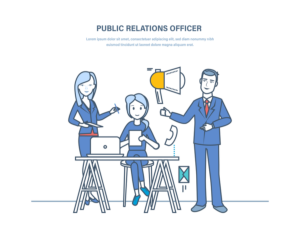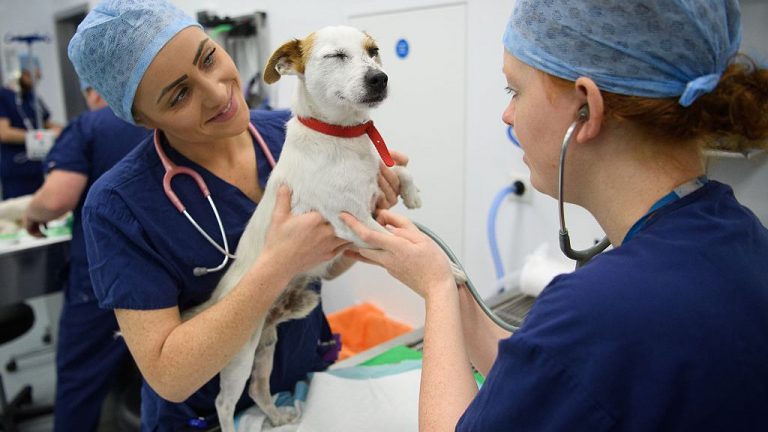How To Become A Public Relations Specialist
What Does A Public Relations Officer Do?

Public relations officers are responsible for managing the reputation of a company. You’ll write press releases, deal with press enquiries, and sometimes manage crises. Your job could include:
- planning PR campaigns and strategies
- monitoring the public and media’s opinion of your client or employer
- writing and editing leaflets, brochures, press releases, speeches, newsletters, websites and social media
- representing the company at events such as press launches, news conferences, exhibitions, open days and sponsorship
- developing good working relationships with the media
- arranging for advertising or promotional films to be produced
- public speaking at presentations, conferences, or radio and TV interviews
You’ll need excellent communication skills to do this role.
What Skills Are Needed?

- Interpersonal skills: Public relations specialists deal with the public and the media regularly; therefore, they must be open and friendly in order to maintain a favorable image for their organization.
- Organizational skills: Public relations specialists are often in charge of managing several events at the same time, requiring superior organizational skills.
- Problem-solving skills: Public relations specialists sometimes must explain how a company or client is handling sensitive issues. They must use good judgment in what they report and how they report it.
- Speaking skills: Public relations specialists regularly speak on behalf of their organization. When doing so, they must be able to clearly explain the organization’s position.
- Writing skills: Public relations specialists must be able to write well-organized and clear press releases and speeches. They must be able to grasp the key messages they want to get across and write them in a short, succinct way, to get the attention of busy readers or listeners.
What Do I Need To Do To Become A Public Relations Officer?

There are no set qualifications to become a public relations officer. However having a degree in marketing or a related qualification is highly desirable. Some organisations may ask for you to have a qualification from the Chartered Institute of Public Relations (CIPR).
No specific A levels subjects are required, but relevant subjects include English, business and media. You need at least two A levels and 5 GCSESs (A-C) to apply for a degree.
Level 3 vocational courses are acceptable as an alternative for some public relations degrees. Relevant courses would include business and media. Check university entry requirements, as public relations degrees are often very popular and receive many applications.
What Education Is Required?

Public relations specialists typically need a bachelor’s degree in public relations, journalism, communications, English, or business. Through such programs, students produce a portfolio of work that demonstrates their ability to prospective employers.
Discover some of the courses you will take pursuing a degree in Journalism or Communications.
Where Could I Be Working?

You could work in a company’s in-house public relations (PR) department, or you might be an account executive at a consultancy that looks after PR for a number of clients. Sometimes you will be expected to do flexible working, such as on weekends and evenings.
What Is The Career Outlook?

Employment of public relations specialists is projected to grow 7 percent from 2019 to 2029, faster than the average for all occupations.
The need for organizations to maintain their public image will continue to drive employment growth.
The use of social media also is expected to create opportunities for public relations specialists as they try to appeal to consumers and the general public in new ways.
What Is This Career Like?

Public relations specialists usually work in offices. Some attend community activities or events. Long workdays are common, as is overtime.
Some of the things a public relations specialist might do:
- Write press releases and prepare information for the media
- Respond to information requests from the media
- Help clients communicate effectively with the public
- Help maintain their organization’s corporate image and identity
- Draft speeches and arrange interviews for an organization’s top executives
- Evaluate advertising and promotion programs to determine whether they are compatible with their organization’s public relations efforts
- Evaluate public opinion of clients through social media







